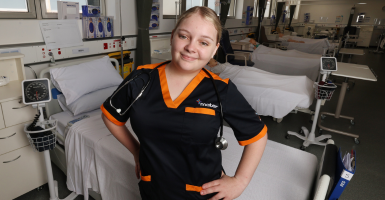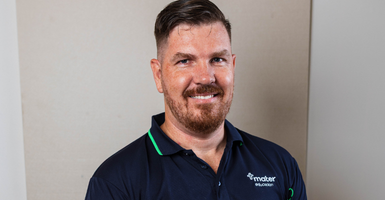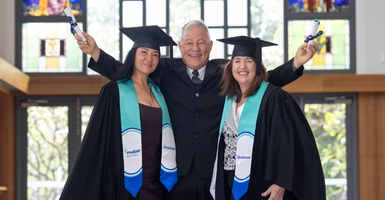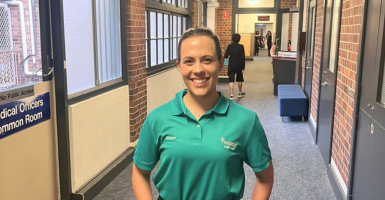Celebrating Mater Education's simulation team
The team behind simulation at Mater might be small but they do important work in improving the skills of healthcare staff and developing the future healthcare workforce every day.
This week is Healthcare Simulation Week, an opportunity to celebrate Mater Education's status as a leader in simulation and also highlight the work of the simulation team in improving patient safety and supporting staff.
Mater Education supports simulation delivery right across the state at each of our health facilities and education campuses, delivering high-quality simulation for Mater staff and external organisations and students to develop new or refresh existing skills.
Simulation Coordinators Michael Blunt, Sue Vidgen, Sarah Leibinger and Simulation Technical Coordinator Paul Ferguson form the engine room of simulation at Mater.
Michael, Sue and Sarah have more than 80 years of nursing experience combined and enjoy sharing their knowledge with other nurses, doctors, students and clinical staff in the education programs they teach.
"Every day is different and it's great seeing the participants developing their skills and knowledge. It is extremely rewarding witnessing that light bulb moment when everything falls into place, and a meaningful connection is made between theory and practice," Sue said.
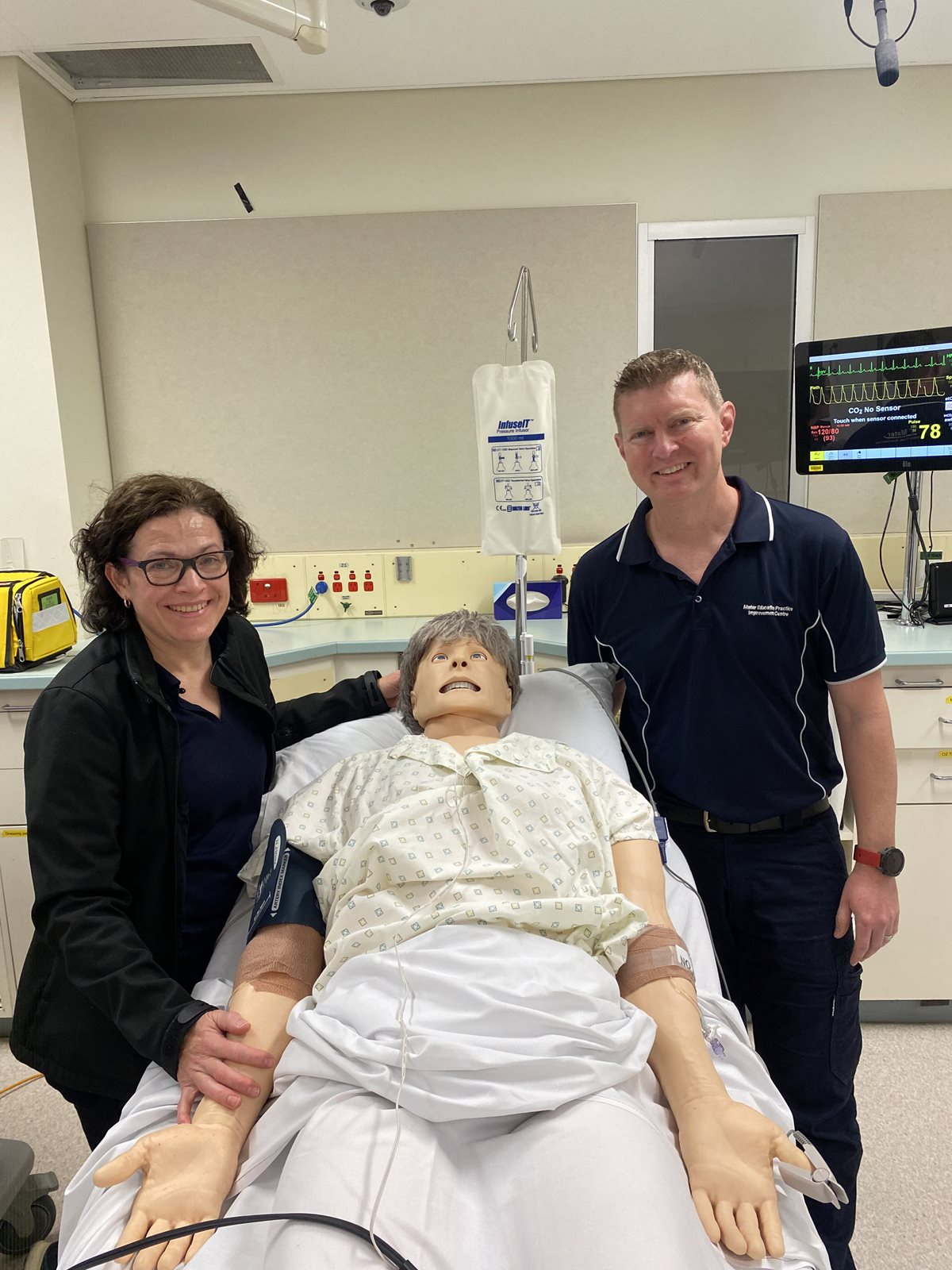
The team manages up to 20 simulation sessions a week at the South Brisbane campus, working behind the scenes to set up the simulation activities and supporting delivery of Mater Education programs.
"We set up simulation stations and resources for whatever our education programs need, whether it be for maternity, advanced life support, neo resuscitation or airway management," Sue said.
"Simulation is all about replicating real-world clinical experiences where learners can feel psychologically safe to develop their skills without fear of consequence or harm to patients.
"Through simulation we can also test hospital systems and processes and identify and correct potential threats to patients and staff."
The team maintains and coordinates the manikins used in simulation, often remaking body parts or making wounds to ensure everything is as realistic as possible.
"We have more than 50 manikins at Mater and we can control how their bodies look and react to suit the specific simulation activity. For example, some of our manikins can breathe, have an asthma attack and give birth," Michael said.
"We are also learning all the time so we're keeping our own clinical skills up to date."
